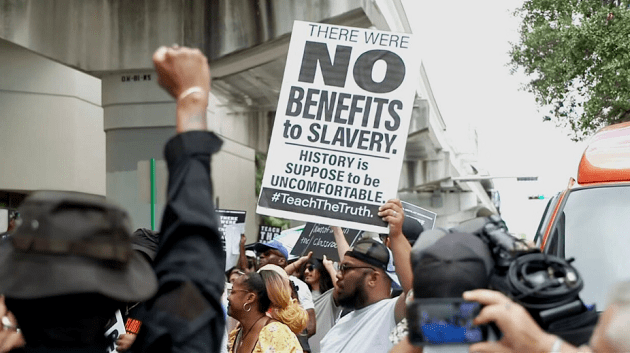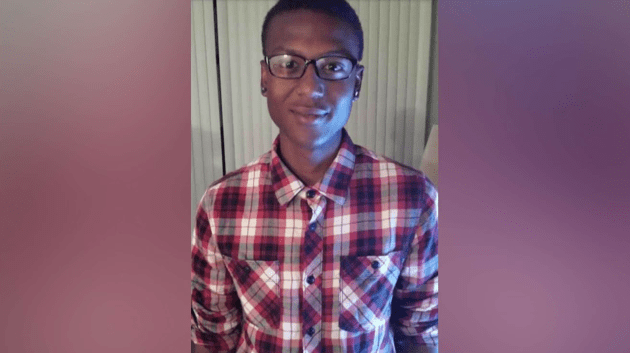
(MIAMI) — After Florida’s governor and education department rolled out a controversial updated curriculum regarding Black history lessons, many students, parents, educators and elected officials raised their voices over how slavery was being presented.
The new curriculum included instruction for middle school students that “slaves developed skills which, in some instances, can be applied for their personal benefit.”
“That’s mean,” Marvin Dunn, a professor at Florida International University, told ABC News. “That’s mean to say that to Black people that there was some advantage, some positive benefit to being enslaved. They weren’t even considered to be persons. So how could they have personal benefits?”
Dunn and other educators have banded together with parents and students and formed a non-profit coalition, the Miami Center for Racial Justice, to protest Florida’s new curriculum and raise awareness for the Black history that they say is being erased from classrooms.
The group has held rallies and teaching tours at Florida’s historical sites to counter some of the misconceptions they say are now being taught.
One of the tours was in Rosewood, Florida, where a Black community once prospered until a white mob destroyed it in 1923.
“People need to walk in the places where these things happened so that they become meaningful to them, so that you carry the experience beyond just the academic histories, not just facts,” Dunn said. “If you only teach history as facts, you’re really teaching a catalog, not really emotion.”
Gov. Ron DeSantis has defended the curriculum while campaigning for president, particularly the notion that slavery benefited Black Americans.
“They’re probably going to show that some of the folks that eventually parlayed, you know, being a blacksmith into things later in life,” DeSantis said during a news conference in July.
The governor further defended the curriculum changes in an interview with Fox News in August contending the curriculum’s wording lets teachers show “how slaves developed skills which, in some instances, could be applied for their personal benefit.”
“That particular passage wasn’t saying that slavery was a benefit. It was saying there was resourcefulness, and people acquired skills in spite of slavery, not because of it,” he said.
Juana Jones, a Miami middle school teacher and parent, however, told ABC News she was concerned about this major change to teaching slavery.
“I do believe that kids should know the truth about how this nation came about, and then they can form their own opinions afterwards,” Jones said. “There’s a level of trauma, and I do believe that everyone should know the truth in middle school [and] high school.”
Dunn warned that the country is not far away from a period of severe anti-race violence, and the only way to solve this problem is to educate people about the truth.
“It’s important to know history, to not repeat history. It’s important to note so that we don’t do it again,” he said.
Copyright © 2023, ABC Audio. All rights reserved.





